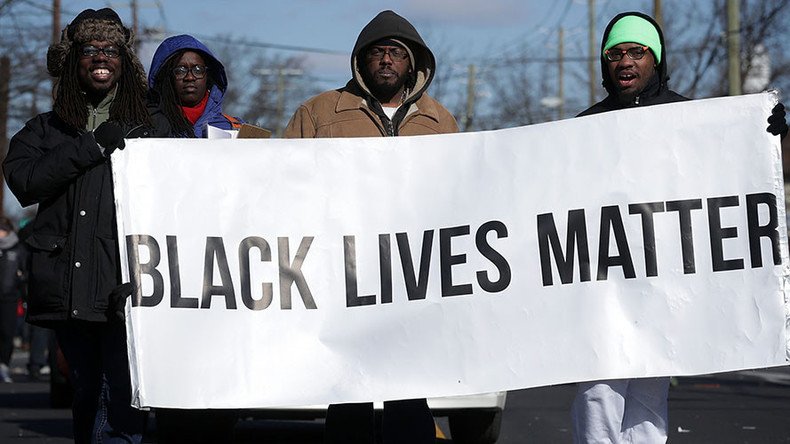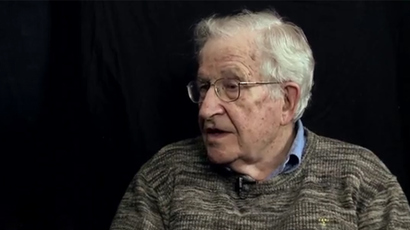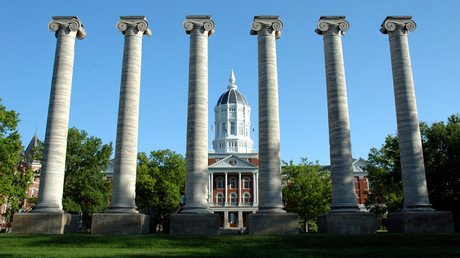Black and white: Staggering gap on whether racial equality is achievable

Nearly half of black Americans say racial equity with whites in the United States is not going to happen, according to a new survey. Whites were more optimistic about equality: 78 percent said it will happen in the future, or already has.
Forty-three percent of black adults who responded to a newly-released Pew Research Center survey agreed that the US "will not make the changes needed to give black equal rights with whites."
43% of blacks doubtful the US will ever achieve racial equality, 42% say it eventually will https://t.co/m37ocMwrbEpic.twitter.com/lIUexewL1z
— Pew Research Center (@pewresearch) June 27, 2016
Meanwhile, 42 percent of black adults said in the same survey that "our country will eventually make the changes" necessary for racial equality, while eight percent of black respondents said the "country has made the changes needed to give blacks equal rights with whites."
Nearly 4 in 10 ‒ 38 percent ‒ of white adult Americans who responded to the Pew survey said the US offers equal rights to both blacks and whites, while 40 percent said the US will eventually make changes necessary for equality.
Only 11 percent of white respondents said the US will not achieve racial equality.
"Blacks, far more than whites, say black people are treated unfairly across different realms of life, from dealing with the police to applying for a loan or mortgage," Pew researchers noted. "And, for many blacks, racial equality remains an elusive goal."
Black respondents were far more likely than white respondents to say black people in the US are "treated less fairly in the workplace (a difference of 42 percentage points), when applying for a loan or mortgage (41 points), in dealing with the police (34 points), in the courts (32 points), in stores or restaurants (28 points), and when voting in elections (23 points)," Pew reported.
Chart: Perceptions of how blacks are treated in the U.S. vary by race https://t.co/m37ocMwrbEpic.twitter.com/CSDidNjy3h
— Pew Research Center (@pewresearch) June 27, 2016
Black respondents were also much more likely than whites to cite racial discrimination, substandard quality of schools and lack of job opportunities as major reasons for racial inequality.
Blacks and whites are divided on major reasons that blacks may be struggling to get ahead https://t.co/80qprdbOrgpic.twitter.com/4ZKT4eZKNQ
— Pew Research Center (@pewresearch) June 27, 2016
According to US census figures from 2014, median adjusted income for black-led households was $43,300, while it was $71,300 for white-led households, Pew pointed out. A significant racial gap also exists when looking at college completion, earning power for those with a bachelor's degree, household wealth, and poverty rates.
Blacks more than twice as likely as whites to be poor https://t.co/IlGFjz9JX0pic.twitter.com/RhCUFnuYIH
— Pew Research Center (@pewresearch) June 27, 2016
For whites, 41 percent said that there was too much attention paid to racial issues, as opposed to 22 percent of blacks and 25 percent of Hispanics; 21 percent of self-identified Democrats, 42 percent of independents, and 59 percent of Republicans agreed that too much attention was paid to race.
More than half ‒ 58 percent ‒ of blacks said too little attention was paid to race, putting them in agreement with 50 percent of Hispanics, 27 percent of whites, 49 percent of Democrats, 25 percent of independents, and 11 percent of Republicans.
For whites, too much attention is paid to race; for blacks & Hispanics, not enough https://t.co/WvMZd6fseYpic.twitter.com/QnHO3xflSl
— Pew Research Center (@pewresearch) June 27, 2016
Just over 4 in 10 ‒ 41 percent ‒ of black respondents said they "strongly support" the Black Lives Matter movement, which sprang from widespread outrage and protests over recent events of policy brutality and profiling in communities of color.
Among blacks, widespread support for #BlackLivesMatter movement https://t.co/FdkigUOjCPpic.twitter.com/GQdCCTbnV1
— Pew Research Center (@pewresearch) June 27, 2016
Black respondents were more likely than whites to say that community cohesiveness, dialogue between races, working to elect black candidates for office, and organizing protests and rallies were effective forms of reaching racial equality.
Many blacks and whites say community engagement is key to bringing about racial equality https://t.co/HIMKynA5NYpic.twitter.com/HX5eXsxctZ
— Pew Research Center (@pewresearch) June 27, 2016
Around half of black respondents said they had been treated with suspicion or judged as unintelligent because of their race or ethnicity in the past 12 months. A fifth of black respondents also said they'd been treated unfairly in hiring, job pay, or promotion, and had been unfairly stopped by police. In all these categories, a single-digit amount of white respondents said they had experienced discrimination over their race.
About half of blacks say they've been treated like they were suspicious or not smart https://t.co/R13b2wISO7pic.twitter.com/hpS9vAktKI
— Pew Research Center (@pewresearch) June 27, 2016
Whites are far more likely than blacks to believe racial discrimination by individuals is the major problem facing black people in the US. Black respondents, however, are more likely to say institutional racism is the top problem they face. Overall, 66 percent of respondents said individual prejudice was the bigger problems, as opposed to 23 percent who said discrimination is embedded in American laws and institutions.
More Americans see individual rather than institutional racism as bigger problem for blacks https://t.co/80qprdbOrgpic.twitter.com/RkzDaxgmdY
— Pew Research Center (@pewresearch) June 27, 2016
Just over a third ‒ 34 percent ‒ of all adult respondents, including 51 percent of blacks and 28 percent of whites, said President Barack Obama has made progress toward improving race relations in the US. Five percent of blacks and 32 percent of whites said the first black president in US history has made relations worse during his two terms in office.
Blacks & whites differ over whether Obama has made race relations better or worse https://t.co/FpIn400rSopic.twitter.com/aaObb5DakN
— Pew Research Center (@pewresearch) June 27, 2016














